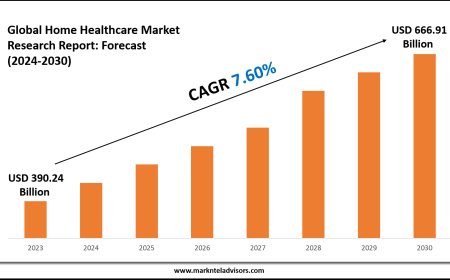Managing Type 2 Diabetes Effectively with Help from a Diabetes Doctor
This blog explores how a diabetes doctor helps you manage Type 2 diabetes, the importance of personalized care, and strategies to improve blood sugar control and prevent complications.

Type 2 diabetes is one of the most common chronic conditions worldwide, affecting millions of adults. Though it can be a lifelong diagnosis, with the right support system and medical care, its very manageable. One of the smartest decisions you can make after being diagnosed is working with a qualified diabetes doctor.
Understanding Type 2 Diabetes
Type 2 diabetes occurs when your body becomes resistant to insulin or doesnt produce enough of it, leading to elevated blood sugar levels. Over time, uncontrolled blood sugar can damage the heart, kidneys, eyes, and nerves.
Managing this condition requires a combination of:
-
Healthy lifestyle changes
-
Medications or insulin
-
Regular blood sugar monitoring
-
Ongoing support from a diabetes doctor
How a Diabetes Doctor Helps Manage Type 2 Diabetes
Accurate Diagnosis and Classification
Type 2 diabetes can sometimes be confused with other forms, like Type 1 or latent autoimmune diabetes in adults (LADA). A diabetes doctor performs:
-
Blood tests
-
C-peptide levels
-
Antibody screening
to confirm the exact diagnosis and develop the right treatment plan.
Medication and Insulin Management
Not everyone with Type 2 diabetes needs insulin immediately. Your diabetes doctor carefully selects:
-
Oral medications
-
Non-insulin injectables
-
Insulin when necessary
and adjusts doses based on your blood sugar readings, lifestyle, and other health conditions.
Blood Sugar Monitoring Plans
A diabetes specialist helps set realistic and achievable blood sugar goals, guiding you on:
-
When and how often to check levels
-
How to interpret readings
-
Using continuous glucose monitors (CGMs) if needed
Better monitoring leads to better control.
Complication Screening and Prevention
A diabetes doctor schedules regular tests to check for:
-
Nerve damage
-
Eye problems
-
Kidney function issues
-
Heart health risks
Catching these early helps avoid severe, irreversible damage.
Nutrition and Exercise Counseling
Diet is a critical part of managing Type 2 diabetes. A good diabetes doctor either provides direct guidance or refers you to a specialist for:
-
Meal planning
-
Carb counting
-
Weight management programs
-
Safe and effective fitness plans
Lifestyle changes improve blood sugar and reduce the need for medications.
When to See a Diabetes Doctor for Type 2 Diabetes
You should consult a diabetes doctor if:
-
Youve just been diagnosed with Type 2 diabetes
-
Your blood sugar remains uncontrolled despite treatment
-
Youre interested in advanced technology like CGMs or insulin pumps
-
You have diabetes-related complications
-
Youre considering pregnancy
Specialist care ensures you receive the most updated, comprehensive management options.
The Role of New Technology in Type 2 Diabetes Care
Modern diabetes management has improved dramatically. A diabetes doctor may recommend:
-
Continuous glucose monitors (CGMs) for real-time glucose data
-
Smart insulin pens and pumps
-
Digital health apps for tracking medications, food, and activity
-
Telehealth consultations for easier access
These tools simplify blood sugar control and improve patient outcomes.
Lifestyle Habits Every Type 2 Diabetes Patient Should Adopt
Even with medication, lifestyle plays a huge role in blood sugar control. A diabetes doctor encourages:
-
A diet rich in vegetables, lean protein, and whole grains
-
Regular aerobic and strength-building exercise
-
Limiting processed foods and sugary drinks
-
Quitting smoking
-
Managing stress through mindfulness, hobbies, or counseling
These habits improve insulin sensitivity and help reduce medication needs.
FAQs
Can Type 2 diabetes go into remission?
Yes with significant lifestyle changes and weight loss, many people experience remission. A diabetes doctor can guide you through a safe and sustainable plan.
Is insulin the only treatment for Type 2 diabetes?
No many patients manage Type 2 diabetes with oral medications, non-insulin injections, or lifestyle changes before insulin is necessary.
How often should I check my blood sugar?
Your diabetes doctor will recommend a schedule based on your medications and control level, which might range from twice daily to a few times a week.
Can Type 2 diabetes be prevented?
In many cases, yes. Maintaining a healthy weight, exercising regularly, and eating a balanced diet can significantly reduce your risk.
Do I need to see a diabetes doctor if my diabetes is well controlled?
Yes regular follow-ups ensure complications are prevented, medications remain appropriate, and new treatments are considered as needed.
Conclusion
Living with Type 2 diabetes doesnt have to mean endless restrictions or health risks. With the support of a knowledgeable diabetes doctor, you can achieve steady blood sugar control, avoid serious complications, and lead a full, active life.
Whether youre newly diagnosed or struggling to stay in range, now is the perfect time to connect with a diabetes doctor who can customize your care, offer cutting-edge treatments, and be your partner in long-term wellness.
If youve been managing on your own, dont wait schedule an appointment today and take control of your health with expert care by your side.


























































